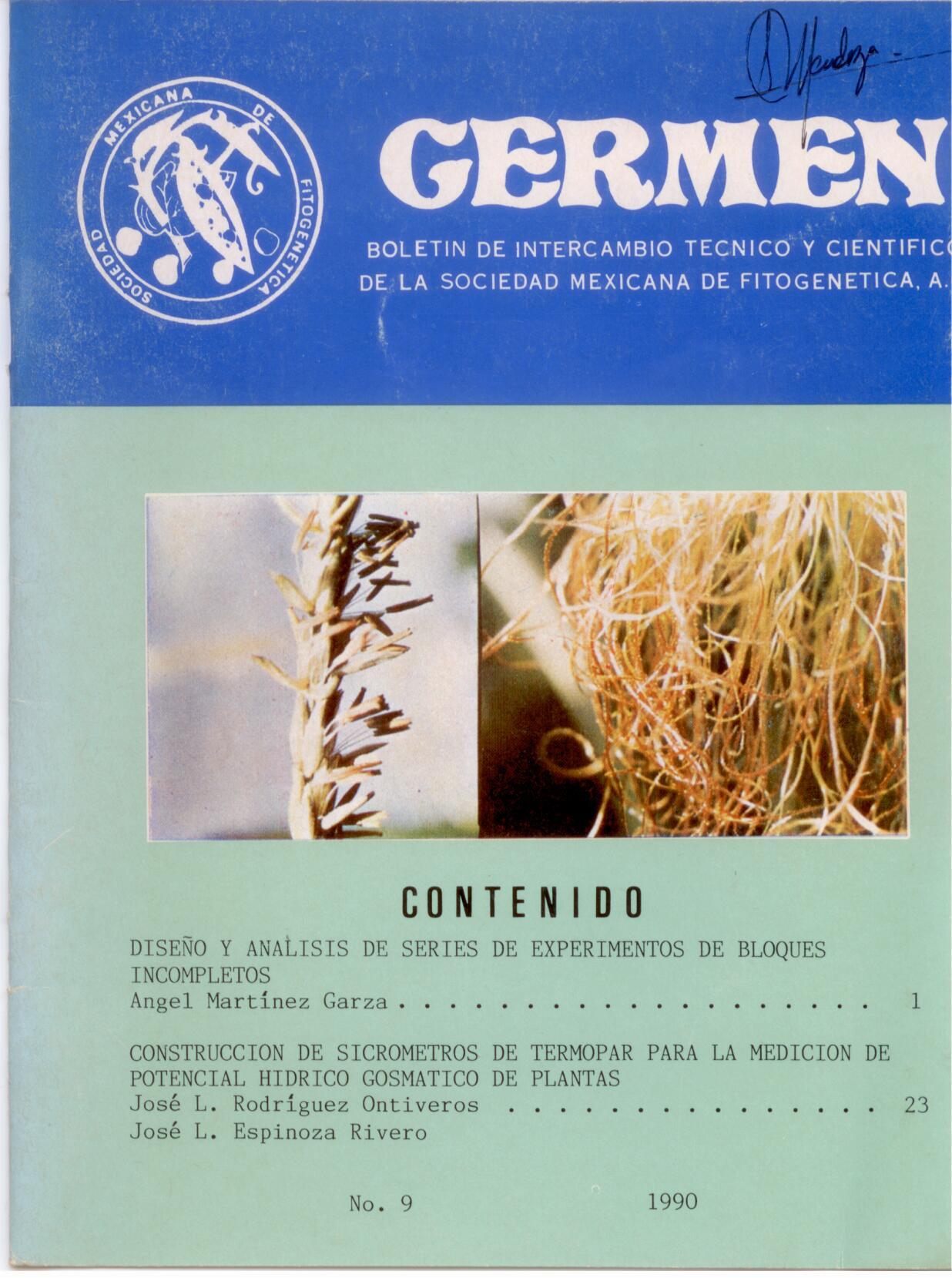CONSTRUCTION OF THERMOCOUPLE SYCHROMOMETERS FOR THE MEASUREMENT OF WATER AND OSMOTIC POTENTIAL IN PLANTS
Main Article Content
Abstract
The purpose of the study of physiological processes in plants is a more complete understanding of the former, as well as their relationship with the growth and development of the latter. For plant breeders, understanding the aforementioned phenomena will necessarily lead to a more informed interpretation of the effects of genetic and environmental factors on the growth, development and performance of plants in the process of improvement; This in turn will result in a more complete appreciation of the interactions between the behavior of plants in different environments and will help to improve and expand the selection criteria of the breeder. However, until now the information or knowledge on physiological aspects is not easily usable or applicable by the plant breeder, because much of the instrumentation designed for such studies is expensive and/or does not allow timely evaluation of large plant populations. Therefore, when precision is sought in the quantification of processes, effects or responses to stimuli, the number of individuals to be studied tends to be reduced, while relatively large populations are required for improvement. In this situation, it is necessary to think about reconciling both interests as much as possible, on the one hand by adapting the physiologist's instruments for use on a greater number of plants, and on the breeder's side, reducing the plants necessary for his work to the maximum; In this way, both disciplines could be combined for a more efficient use of the available genetic resource and the obtaining of better varieties.
Article Details

This work is licensed under a Creative Commons Attribution-NonCommercial-ShareAlike 4.0 International License.

